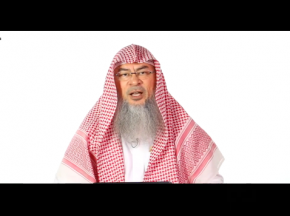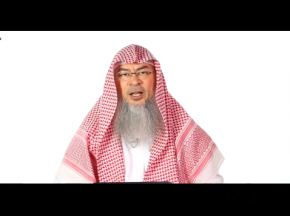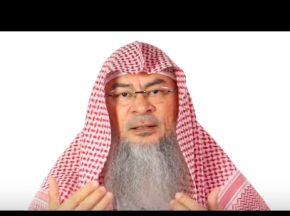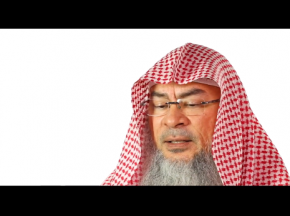content of level
If a man does not pray in the masjid, are his prayers invalid?
If a man does not pray in the masjid, are his prayers invalid? - Assim al hakeem.
Can I pray fard prayer behind someone praying voluntary prayer or vice versa?
Can I pray fard prayer behind someone praying voluntary prayer or vice versa? - Assim al hakeem.
Can a traveler be an Imam for residents & Must traveler pray full behind resident Imam
Can a traveler be an Imam for residents & Must traveler pray full behind resident Imam - Assimalhakeem.
The most burdensome prayers on the hypocrites
The most burdensome prayers on the hypocrites - Assim al hakeem.
Can husband and wife have intimacy after finishing Umrah and Hajj?
Can husband and wife have intimacy after finishing Umrah and Hajj? - Assim al hakeem.
Beginning and end time for Fajr
Beginning and end time for Fajr - Assim al hakeem
Prohibition on buying intoxicants (Those who are cursed regarding Alcohol)
Prohibition on buying intoxicants (Those who are cursed regarding Alcohol) - Assim al hakeem
Where to look during tashahhud?
Where to look during tashahhud? - Assim al hakeem.
If I prayed without wudu & realised at next prayer, should I pray Qadha of last prayer
If I prayed without wudu & realised at next prayer, should I pray Qadha of last prayer Assimalhakeem.
Is it permissible to raise hands and say ameen during friday khutbah dua?
Is it permissible to raise hands and say ameen during friday khutbah dua? - Assim al hakeem.
Things forbidden during Khutbah
Things forbidden during Khutbah: Replying to salam, saying yar hamakumullah, jumping rows.
If a person faints while praying what should people praying next to him do?
If a person faints while praying what should people praying next to him do? - Assim al hakeem.
Some people raise their hands after saying tashahhud before making salam, is it permissible?
Some people raise their hands after saying tashahhud before making salam, is it permissible?
Divorcing while the wife is Pregnant
Divorcing while the wife is Pregnant - Assim al hakeem.
Is saying Haqqan la ilaha...after the Iqamah permissible, What to say after Iqamah?
Is saying Haqqan la ilaha...after the Iqamah permissible, What to say after Iqamah? Assim Al Hakeem.
Things an Imam can say out loud to followers before starting the Fard Salah / Prayer
Things an Imam can say out loud to followers before starting the Fard Salah / Prayer Assim al hakeem.
What should one say or recite before joining the congregation (Jamah Salah)?
What should one say or recite before joining the congregation (Jamah Salah)? - Assim al hakeem.
Should we pray voluntary prayers while traveling?
Should we pray voluntary prayers while traveling?
Pausing & keeping the head in the middle for a few seconds in between the two salams
Pausing & keeping the head in the middle for a few seconds in between the two salams Assim al hakeemز
Praying Witr Directly after Ishaa prayer
Praying Witr Directly after Ishaa prayer.




















